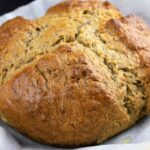Gaining weight, especially in a healthy way, can be a challenge for some. If you’re looking to increase your weight, understanding what foods contribute to weight gain is crucial. Being underweight can sometimes indicate a deficiency in essential vitamins and minerals, potentially leading to a weakened immune system or increased risk of bone fractures.
Identifying If You’re Underweight
Your Body Mass Index (BMI) serves as an indicator of whether your current weight aligns with a healthy range. Calculating your BMI requires knowing your height and weight.
Tips to Gain Weight Healthily: Foods to Focus On
Here are practical tips and foods to incorporate into your diet to gain weight effectively and healthily.
Dietary Strategies for Weight Gain
- Gradual Calorie Increase: Aim to add approximately 300 to 500 extra calories daily through healthy food sources.
- Frequent, Smaller Meals: Opt for smaller, more frequent meals supplemented with nutritious snacks in between.
- Calorie-Dense Additions: Enrich your meals with calorie-rich additions like cheese, nuts, and seeds to boost their energy content.
- High-Calorie Beverages: Consume high-calorie drinks, such as milkshakes, between meals to increase your overall calorie intake.
- Balanced Diet: Prioritize a balanced diet encompassing various food groups, including fruits, vegetables, starchy carbohydrates, dairy products, and their alternatives.
Food Choices for Healthy Weight Gain
- Protein-Rich Foods: Incorporate protein sources like beans, pulses, fish, eggs, and lean meat into your meals to support muscle growth.
- Convenient Snacks: Choose easy-to-prepare snacks such as yogurt or rice pudding for quick and healthy calorie boosts.
- Nuts and Nut Butters: High in calories and healthy fats, nuts and nut butters are excellent for adding extra calories to your diet.
- Full-Fat Dairy: Milk, cheese, and yogurt (especially Greek yogurt) provide protein and calcium.
- Healthy Fats and Oils: Incorporate sources like olive oil, avocado, and fatty fish (salmon, tuna) for essential fatty acids and calories.
The Importance of Exercise
- Strength Training and Yoga: Engage in strength training or yoga to build muscle mass, which can contribute to weight gain. Exercise can also stimulate appetite.
Foods to Limit or Avoid
- Avoid Empty Calories: Refrain from relying on chocolate, cakes, and sugary drinks as primary sources of calories, as these offer little nutritional value.
- Don’t Fill Up on Drinks Before Meals: Avoid consuming excessive fluids before meals, as this can reduce your appetite and limit your food intake.
Additional Support
Building Muscle
Strength training can help you build muscle and increase your appetite.
Home Meal Delivery
If preparing meals is difficult, consider home meal delivery services provided by local councils.
When to Seek Professional Advice
Consult a healthcare professional if you experience:
- Sudden weight loss.
- Unexplained weight loss despite consistent diet and exercise habits.
- Using food control as a coping mechanism for emotional issues.
These could indicate underlying health conditions requiring medical attention.
